Alabama’s method of electing judges has been challenged
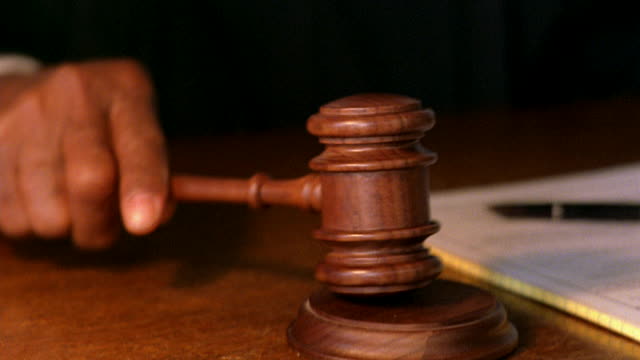
A federal judge will hear arguments Wednesday in a voting rights lawsuit challenging Alabama’s system of statewide elections for appellate courts, a practice that has resulted in all-white judges. The 2016 lawsuit contends the method dilutes the voting power of African Americans and results in all-white appellate courts in a state where one in four people is black. The lawsuit was filed by the Alabama State Conference of the NAACP and four black voters. Alabama is asking a judge to uphold the statewide elections. State lawyers said if black candidates have been unsuccessful in recent years, it’s because they are running as Democrats in a red state. Alabama’s appellate courts are currently all-white and all-Republican. There have been three African American judges on the state Supreme Court. Republished with permission of the Associated Press.
Jeff Sessions slams judges for thwarting Donald Trump policies

The nation’s chief law enforcement officer on Thursday blasted federal judges who have thwarted or criticized Trump administration policies, accusing them of trying to veto the president’s decisions because they disagree with him politically. Attorney General Jeff Sessions, speaking at the conservative Heritage Foundation, said U.S. district court judges are failing to respect Congress and the “prerogatives and responsibilities of the executive branch” in issuing their orders, namely those who have temporarily blocked policies like President Donald Trump‘s travel ban from taking effect. Sessions took aim at a Brooklyn judge who decried as “heartless” the Trump administration’s recent move to end a program protecting some young immigrants from deportation. “He didn’t say it was unlawful. He said, ‘I don’t like your policy,’ in effect,” Sessions said. “A judge’s comments on policy like this is offensive, and it’s disrespectful of the legislative and executive branches, and to the fine attorneys in the Department of Justice.” It was an unusual commentary from the nation’s top prosecutor, but it’s not without precedent. Following his remarks, Sessions answered questions from former Attorney General Edwin Meese III, who was known for intense attacks on what he saw as judicial activism in the 1980s. And it was hardly the first time Sessions himself has criticized the judiciary, in keeping with Trump’s own intensely personal attacks on judges who have not ruled in his favor. In April, Sessions drew the ire of Hawaii’s Democratic lawmakers after saying he was “amazed that a judge sitting on an island in the Pacific” could stop Trump’s travel ban, a point Sessions reiterated Thursday. Hawaii was one of three states where a judge issued what Sessions described as “activist nationwide injunctions” blocking the policy, which attempts to bar travelers from certain predominantly Muslim nations from entering the United States. “Forgive me for feeling strongly about this,” Sessions said, his voice rising. “In effect, single judges are making themselves super-legislators for the entire United States.” Yet as an Alabama senator, Sessions and other Republicans supported a Texas judge’s injunction blocking an Obama-era immigration program that spared some immigrants from deportation. Sessions said Thursday he was confident Trump administration policies would prevail in higher courts. The American Bar Association fired back, saying in a statement that Sessions had disregarded the constitutional independence of the judicial branch. “Judges should not be attacked or diminished by another branch of government just because they do not rule in its favor,” the organization said. “Judicial independence is critical to maintaining the rule of law in our nation.” Republished with permission from the Associated Press.
Donald Trump cries foul on judges, but he’s ahead of Barack Obama
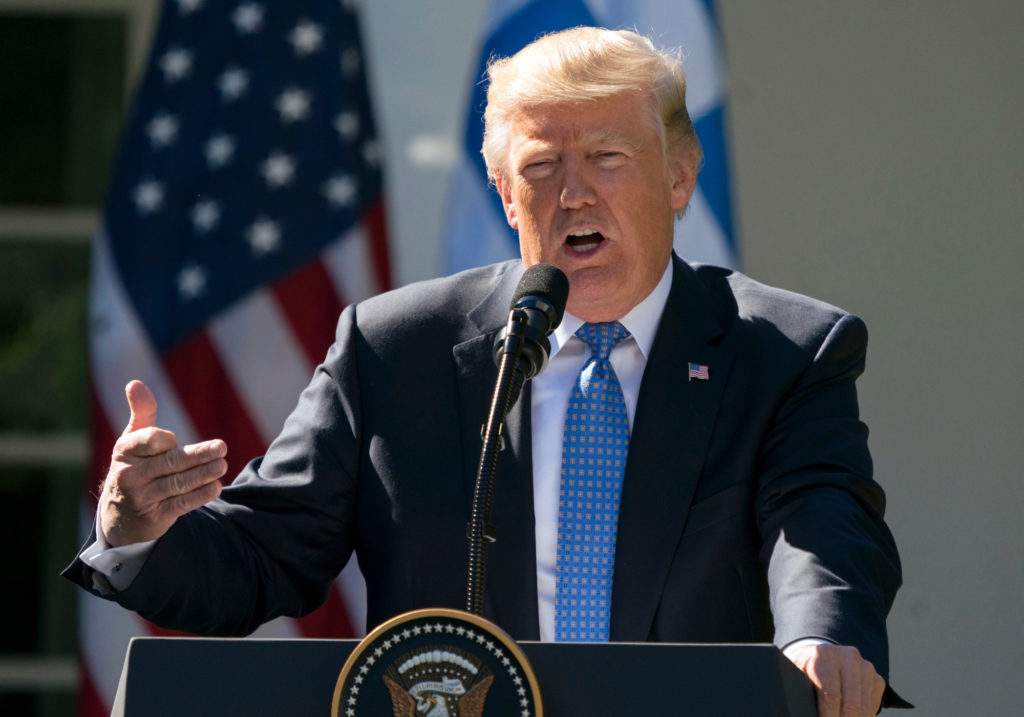
President Donald Trump says Democrats are holding up his judicial nominees, but almost nine months into his presidency, he has had more judges confirmed than President Barack Obama did in the same time period, and his numbers aren’t far off those of other recent presidents. Trump counts the confirmation of Supreme Court Justice Neil Gorsuch as one of his signature achievements. But on Monday he charged that Senate Democrats are holding up confirmation of his other judicial nominees “beyond comprehension.” A top Senate Democrat said claims Democrats are obstructing judicial nominees are false. Speaking in the White House Rose Garden on Monday afternoon, Trump said “something that people aren’t talking about is how many judges we’ve had approved, whether it be the court of appeals, circuit judges, whether it be district judges.” “The Democrats are holding them up beyond anything. Beyond comprehension, they’re holding them up,” Trump said. Earlier in the day, at a Cabinet meeting, Trump said his judicial nominees are “some of the most qualified people ever, and they’re waiting forever on line.” Since taking office in January, Trump has nominated 61 people to federal judgeships, according to information available on the Administrative Office of the U.S. Courts’ website. Approximately 100 more seats are open and awaiting a nominee. Seven of Trump’s judicial nominees, including Gorsuch, have been confirmed by the Senate. According to statistics available online from the Federal Judicial Center, the judicial branch’s research and education agency, Obama had three judicial nominees confirmed at the same point of his presidency, just shy of nine months in, including Supreme Court Justice Sonia Sotomayor. President George H.W. Bush had four confirmed. President George W. Bush had eight. President Bill Clinton, who had a number of nominees confirmed in October of his first year, had nine, including Justice Ruth Bader Ginsburg. And President Ronald Reagan had 13, including Justice Sandra Day O’Connor. Sen. Dianne Feinstein, the top-ranked Democrat on the Judiciary Committee, said in a statement Monday that Obama’s first four appeals court nominees waited an average of 213 days from nomination to confirmation while Trump’s first four appeals court nominees waited an average of 84 days. “Republicans appear to believe they can compensate for their stalled legislative agenda by attacking Democrats with false claims about judicial nominations,” the statement said. White House spokeswoman Kelly Love repeated in a statement Wednesday that Democrats continue to obstruct the confirmation process for judges and also for other presidential nominees. “The President has delivered on his promise to nominate highly qualified judges, starting with Justice Gorsuch. Now, it is time to confirm the outstanding nominees because it’s what the American people deserve,” the statement read. Russell Wheeler, a visiting fellow at the Brookings Institution who studies judicial nominations, said Trump has made many more judicial nominations than Obama in the same window. But Wheeler said it’s too soon to talk about the rate at which Trump’s nominees are confirmed. At the same point in their first terms, Obama had nominated 22 people to federal trial and appeals courts and George W. Bush 59, about the same as Trump, Wheeler said. “I don’t put too much stock in his comments that Democrats are obstructing,” Wheeler said of Trump. Sheldon Goldman, a professor of political science at the University of Massachusetts Amherst who studies judicial selection and confirmation, said he thinks “Trump is doing very well,” in terms of getting his nominees confirmed. He said it “strains credulity” to say Democrats are responsible for any obstruction. Republicans, he said, “hold almost all the cards.” That’s in part because in 2013, then-majority Democrats changed Senate rules so judicial nominations for trial and appeals courts are filibuster-proof, meaning it takes only 51 votes, a simple majority in the 100-member Senate, for confirmation. Republicans currently hold 52 seats. The only thing left for Democrats, Goldman said, is a longstanding Senate tradition that home-state senators must sign off on a judge before a Senate vote. By tradition, senators return a so-called blue slip to sign off on a home-state judicial nominee. Without the blue slip, nominees are not given a vote in the Judiciary Committee. As a result, Democrats only have sway over judicial nominees in states where they hold at least one Senate seat. The Senate’s top Republican, Majority Leader Mitch McConnell of Kentucky, has said the Senate should no longer abide by the tradition. But how to apply the blue slip tradition is up to Judiciary Committee Chairman Charles Grassley, R-Iowa. “Senator Grassley has said that he expects senators and the president to continue engaging in consultation when selecting judicial nominees,” Grassley spokesman Taylor Foy said in a statement. Republished with permission from the Associated Press.
Donald Trump nominates two Alabama district court judges
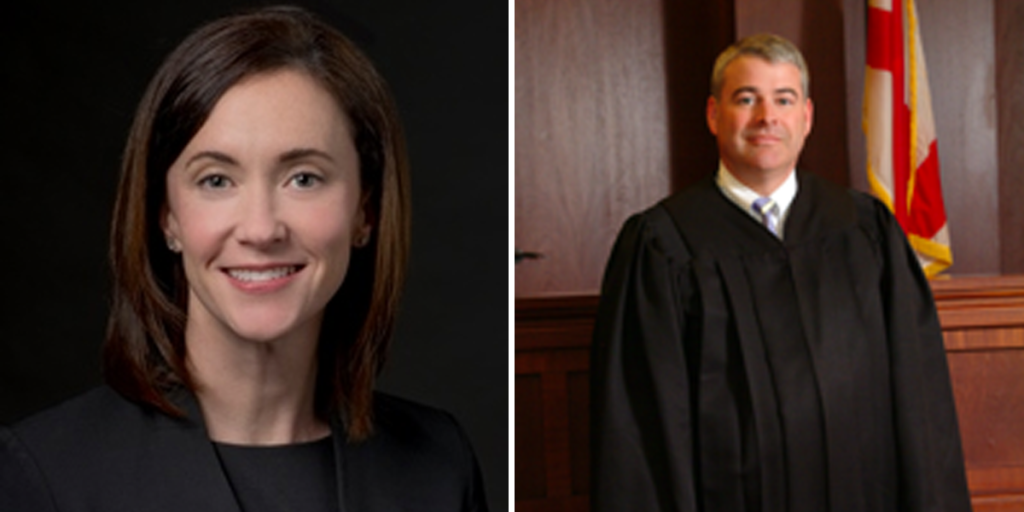
President Donald Trump announced 11 new federal district court nominations Thursday, including two in the Yellowhammer State, in an effort to fill more of the 100+ vacancies he inherited when he took office in January. Among the nominees is Annemarie Carney Axon an Alabama trust, estate and business attorney, to the U.S. District Court for the Northern District of Alabama. As well as Liles Burke, an associate judge on the Alabama Court of Criminal Appeals, to be a judge on the U.S. District Court for the Northern District of Alabama. Axon is a member of Wallace, Jordan, Ratliff, & Brandt, LLC, a Birmingham-based law firm where her practice is devoted entirely to litigation, with a concentration in fiduciary and probate litigation. In addition to fiduciary litigation, Annemarie’s experience includes litigation involving state and federal environmental laws, federal securities law, state immunity under 42 U.S.C. 1983, and general contract and tort law. After graduating law school, she clerked for Judge Inge P. Johnson for the same district court she’s been nominated to. She received her B.A. in History and Political Science from the University of Alabama and her J.D. from the University of Alabama School of Law. Burke, a native of Marshall County, was named the Municipal Judge for the City of Arab, Ala. in 2001. He held that office until 2006 when he was appointed Marshall County District Judge by former Governor Bob Riley. In 2008 Burke was elected to a full term on the District Court, without opposition. In February of 2011, Burke was named by former Governor Robert Bentley to the Alabama Court of Criminal Appeals, filling the office left vacant by the election of Judge Kelli Wise to the Alabama Supreme Court. He was elected to a six-year term in 2012 without opposition. Burke received his B.A. from the University of Alabama and J.D. from the University of Alabama School of Law. There are currently 107 vacancies in the federal district courts nationwide.
Donald Trump eyes two conservative Alabama judges to fill federal court vacancies
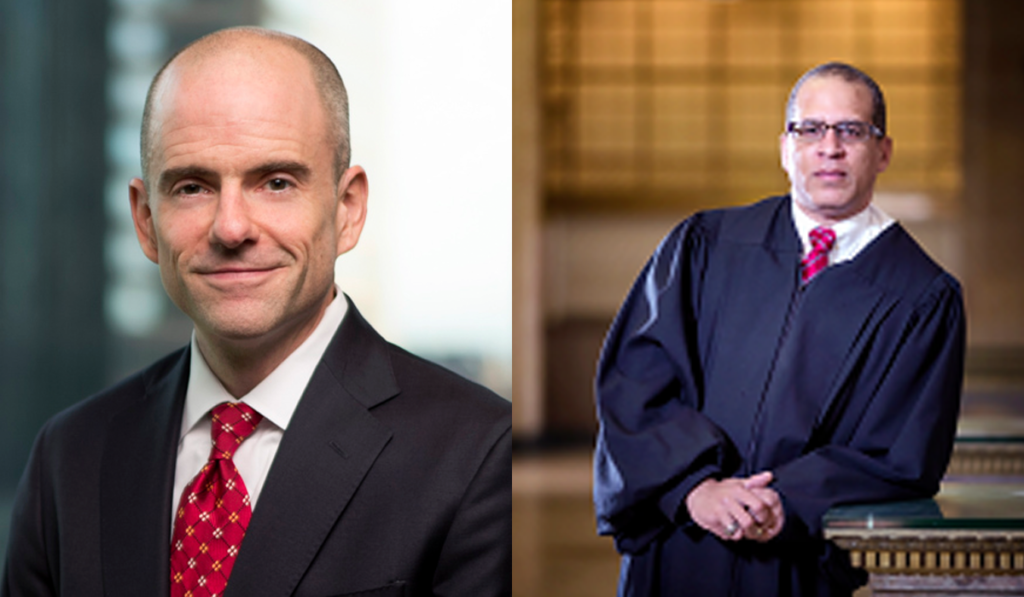
President Donald Trump once again is showing favor to the Yellowhammer State. On Monday, the president is expected to name two, conservative Alabama judges among a slate of 10 nominees to fill federal courts vacancies, as he takes the first major step toward filling more than 120 vacancies in lower federal courts across the country. According to a White House official, Trump will be nominating the judges from his previous list of potential Supreme Court justices. Among the nominees is Birmingham’s own Kevin C. Newsom, a lawyer in the Magic City, who served as the state’s solicitor general and clerked for Justice David H. Souter. The New York Times reports he will be nominated to the 11th Circuit in Atlanta. Newsom, a partner at the Birmingham-based Bradley firm, has argued four cases in the U.S. Supreme Court, filed amicus curiae briefs in many others, and authored numerous certiorari-stage briefs. He has also argued more than 35 cases in the U.S. Courts of Appeals for the Second, Third, Fourth, Fifth, Sixth, Seventh, Tenth, Eleventh, and D.C. Circuits, as well as in state supreme and appellate courts and a Native American tribal appellate court. The other Alabama nominee is judge Terry F. Moorer of the Federal District Court in Montgomery. Sworn in as Magistrate Judge in 2007, Moorer is expected to be the nominee for the U.S. District Court for the Middle District of Alabama. A retired Col. in the Alabama National Guard, Moorer was the primary architect of the Alabama Code of Military Justice. He has a J.D. degree from The University of Alabama Law School, a B.A. degree from Huntingdon College, as well as A.A. degree from Marion Military Institute. Prior to his appointment as Magistrate Judge, he was an Assistant U.S. Attorney in the Middle District of Alabama from 1990-2007. From 2001-2007, he served as the Lead Task Force Attorney for the Organized Crime Drug Enforcement Task Force, where he was responsible for coordinating the investigation of and prosecution of major narcotics trafficking. Other nominees include: Federal Appeals Court Amy Coney Barrett: law professor at University of Notre Dame and former law clerk to Justice Scalia; 7th Circuit Court of Appeals John Bush: lawyer in Louisville, KY; 6th Circuit Court of Appeals Joan Larsen: Michigan Supreme Court Justice; 6th Circuit Court of Appeals David Stras: Minnesota Supreme Court Justice; 8th Circuit Court of Appeals Federal District Courts Dabney Friedrich: former member of the U.S. Sentencing Commission; U.S. District Court for the District of Columbia Judge David Nye: Idaho state court judge; U.S. District Court of Idaho Scott Palk, assistant dean at University of Oklahoma College of Law; U.S. District Court for the Western District of Oklahoma Court of Federal Claims Damien Schiff: lawyer with Pacific Legal Foundation; Court of Federal Claims Before taking office, Trump’s nominees will need to confirmed by the U.S. Senate where Republicans will need only 51 votes to fill each judicial vacancy thanks to the 2013 decision by Senate Democrats to eliminate the filibuster for all presidential nominations below the Supreme Court. Monday’s announcement is expected to be the first of many to come.
2 federal judges find new Donald Trump travel ban discriminatory
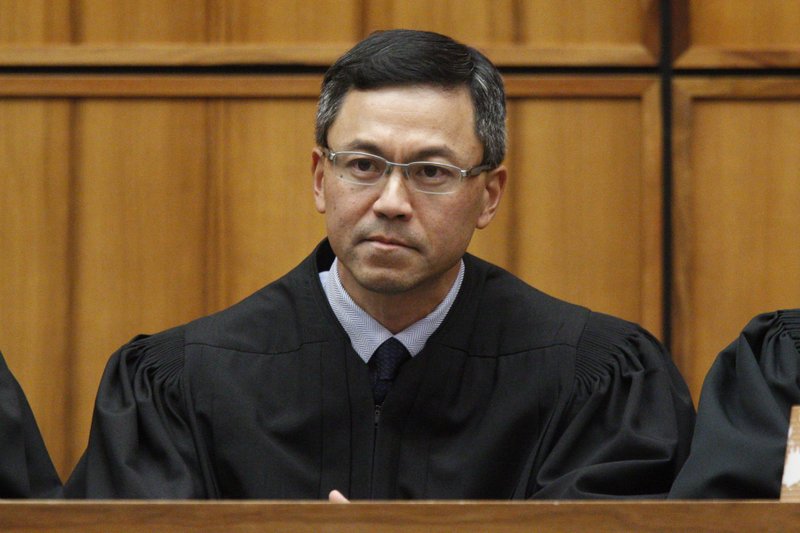
Rejecting arguments from the government that President Donald Trump‘s revised travel ban was substantially different from the first one, judges in Hawaii and Maryland blocked the executive order from taking effect as scheduled on Thursday, using the president’s own words as evidence that the order discriminates against Muslims. The rulings in Hawaii late Wednesday and in Maryland early Thursday were victories for civil liberties groups and advocates for immigrants and refugees, who argued that a temporary ban on travel from six predominantly Muslim countries violated the First Amendment. The Trump administration argued that the ban was intended to protect the United States from terrorism. In Greenbelt, Maryland, U.S. District Judge Theodore Chuang — who was appointed by then-president Barack Obama — called Trump’s own statements about barring Muslims from entering the United States “highly relevant.” The second executive order removed a preference for religious minorities from the affected countries, among other changes that the Justice Department argued would address the legal concerns surrounding the first ban, which was also blocked in court. “Despite these changes, the history of public statements continues to provide a convincing case that the purpose of the Second Executive Order remains the realization of the long-envisioned Muslim ban,” Chuang said. The initial ban sparked chaos at U.S. airports and widespread criticism around the world when it was signed in January. It was later blocked by a judge in Washington state, a ruling that was upheld by the 9th U.S. Circuit Court of Appeals. In Honolulu, U.S. District Judge Derrick Watson criticized what he called the “illogic” of the government’s arguments and cited “significant and unrebutted evidence of religious animus” behind the travel ban. He also noted that while courts should not examine the “veiled psyche” and “secret motives” of government decision-makers, “the remarkable facts at issue here require no such impermissible inquiry.” Watson also wrote, referring to a statement Trump issued as a candidate, “For instance, there is nothing ‘veiled’ about this press release: ‘Donald J. Trump is calling for a total and complete shutdown of Muslims entering the United States.’” The White House and the Justice Department had no immediate comment on Thursday. The case was argued in court by acting U.S. Solicitor General Jeffrey Wall, who said the ban “doesn’t say anything about religion. It doesn’t draw any religious distinctions.” Speaking Wednesday evening at a rally in Nashville, Tennessee, Trump called the ruling in Hawaii an example of “unprecedented judicial overreach” and said his administration would appeal it to the U.S. Supreme Court. He also called his new travel ban a watered-down version of the first one, which he said he wished he could implement. “We’re going to win. We’re going to keep our citizens safe,” the president said. “The danger is clear. The law is clear. The need for my executive order is clear.” While the Hawaii order only halts the ban temporarily, Chuang’s ruling in Maryland took the form of a preliminary injunction, which will remain in effect indefinitely as the case is litigated. Chuang was also the first judge to stop the ban outside the 9th Circuit, which has a liberal reputation. “Unless and until the president realizes that this is a battle in which he’s going to keep losing and decides to do the right thing and abandon this course, for as long as he’s on it we’ll keep litigating it and I think we’re going to keep winning,” said Omar Jadwat, who argued the case for the American Civil Liberties Union in Maryland. Chuang did not block the entire executive order, saying the plaintiffs didn’t sufficiently develop their argument that a temporary ban on refugees discriminates on the basis or religion. Plaintiffs in the Maryland case also had sought to stop a portion of the order that would reduce the number of refugees allowed to enter the country this fiscal year from 110,000 to 50,000. Still, the judge’s order is hugely meaningful for many plaintiffs, including a man in Texas whose same-sex fiancé is seeking a visa to enter the United States from Iran, said Justin Cox, an attorney with the National Immigration Law Center who also argued the Maryland case. “This Muslim ban was threatening to either separate or continue to separate families who’ve already been separated for months and years,” Cox said. “It has real-world consequences and we were obviously very glad to see that Judge Chuang recognized those and rejected the government’s frankly callous argument that our clients have already been waiting and another few months couldn’t possibly be irreparable.” If the administration appeals Watson’s decision at the 9th Circuit level, the matter would be heard by different judges from the three who ruled on the case last month. That’s because the panel of judges assigned to such cases rotates every month, said court spokesman David Madden. The 9th Circuit on Wednesday declined to reconsider the 3-0 decision not to reinstate the original ban. In a dissent, five judges said they considered that decision incorrect and wanted it vacated. The hearings in Maryland and Hawaii were two of three held Wednesday in federal courts around the country. U.S. District Judge James Robart in Seattle, who blocked the initial travel ban last month, did not immediately rule on a request from an immigrant-rights group to block the revised version. In all, more than half a dozen states are trying to stop the ban. Republished with permission of The Associated Press.
Justice John Roberts, judiciary’s leader, silent on Donald Trump criticism
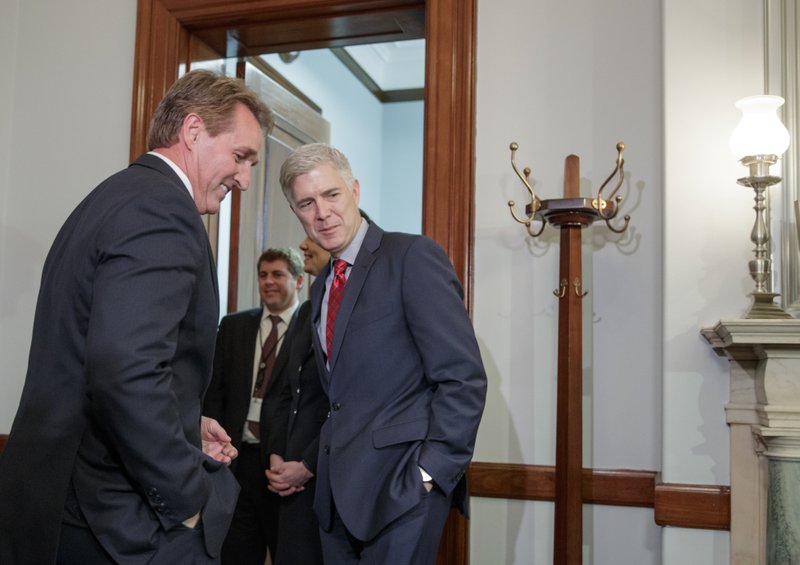
President Donald Trump‘s unusually personal criticism of federal judges has drawn rebukes from many quarters, including from Supreme Court nominee Neil Gorsuch, but not much from the judges themselves. The leader of the federal judiciary, Chief Justice John Roberts, has himself been a target of Trump’s attacks. But Roberts has refused to comment on Trump’s remarks, including recent criticism of judges who are dealing with the president’s executive order on immigration. And that’s not likely to change, even if the tweeter in chief keeps up his attacks on judges. Bolstered by lifetime tenure, independent judges should not respond to criticism, no matter how harsh or that its source is the president, said a former judge, a law school dean and a constitutional law professor. Judges “should basically give the tweets the attention they deserve, which means they should be ignored. This is basically a childish tantrum from someone who didn’t get his way. And the judiciary should go about its business and decide cases, including cases involving him,” said Vanderbilt University law professor Suzanna Sherry. Trump’s style may be different and his language more coarse, but the comments themselves are not the “threat to judicial independence that some commentators have made them out to be,” said University of Pennsylvania law school dean Theodore Ruger. Former U.S. District Judge Paul Cassell said judges would find themselves in unfamiliar territory “if they start critiquing the Twitter feed of the president.” Among sitting judges who have commented in some way is Gorsuch, who has been meeting on Capitol Hill with senators who soon will consider whether to confirm him to the Supreme Court. On Wednesday, Gorsuch said he found the president’s attacks on the judiciary “disheartening” and “demoralizing,” according to Democratic Sen. Richard Blumenthal of Connecticut. Trump took to Twitter to question the veracity of Blumenthal’s account, but Senate Democratic Leader Chuck Schumer of New York and Sen. Ben Sasse, R-Neb., each confirmed that Gorsuch made similar comments to them. Sasse told MSNBC’s “Morning Joe,” ”Frankly, he got pretty passionate about it,” said Sasse, adding that Gorsuch said any attack on the “‘brothers or sisters of the robe is an attack on all judges.’” Former Sen. Kelly Ayotte, a Republican who is helping with Gorsuch’s confirmation and attended the Blumenthal meeting, issued a statement acknowledging that Gorsuch said he finds any criticism of a judge’s integrity and independence to be “disheartening and demoralizing.” But Ayotte said the nominee also made clear he was not referring to any specific comment. Also Wednesday, U.S. District Judge Dan Polster said during a speech in Cleveland that questioning the legitimacy of a federal judge is a line that shouldn’t be crossed. Polster, a nominee of President Bill Clinton, did not mention Trump by name, according to a report on Cleveland.com. Polster said that a public office holder who makes those types of comments “calls into question his or her own legitimacy.” Roberts was the first judge to incur Trump’s wrath. During the presidential campaign last winter, Trump called the chief justice “an absolute disaster” and “disgraceful” mainly for the two opinions Roberts wrote that preserved President Barack Obama‘s health care overhaul. Next in Trump’s sights was U.S. District Judge Gonzalo Curiel, who was presiding over fraud lawsuits against Trump University. In June, Trump called Curiel “a hater of Donald Trump” who couldn’t be fair to him because Curiel is “of Mexican heritage” and Trump had proposed building a wall on the U.S.-Mexican border. Last week, Trump called U.S. District Judge James Robart a “so-called judge” after Robart imposed a temporary halt on Trump’s executive order barring people from seven predominantly Muslim countries from coming to the United States. On Sunday, Trump renewed his Twitter attacks against Robart: “Just cannot believe a judge would put our country in such peril. If something happens blame him and court system. People pouring in. Bad!” On Wednesday, he said the “courts seem to be so political,” in reference to the three federal appeals court judges who are considering the administration’s plea to enforce the order. Trump is not the first president to object to court decisions or to opine about how a court should rule, said Paul Collins, a political science professor at the University of Massachusetts at Amherst. Obama used his 2010 State of the Union message to assail the Supreme Court’s Citizens United campaign finance ruling, with several justices in the audience. Obama also delivered a lengthy pitch for his health care law while the court was weighing the case in 2015. With the exception of John F. Kennedy, every president since Dwight Eisenhower has been critical of some Supreme Court decisions, said Collins, drawing on research he did with co-author Matthew Eshbaugh-Soha of the University of North Texas. But past presidents did not make their displeasure known by “attacking judges … or by questioning the decision such that there’s a possibility of undermining faith in the judicial system,” Collins said. “I get this uncomfortable sense that the president may be trying to lower confidence in judges in anticipation of defying a ruling.” Ruger said Roberts, as the head of the judicial branch of government, or another justice might feel compelled to speak up about the importance of an independent judiciary if the attacks continue. But Cassell, a law professor at the University of Utah who was a judge from 2002 to 2007, said Trump has the right to voice his disagreement. “We live in an age now where, for better or for worse, the language we use is getting rougher in a variety of contexts,” he said. Republished with permission of the Associated Press.
A look at the judges who will rule on Donald Trump’s travel ban
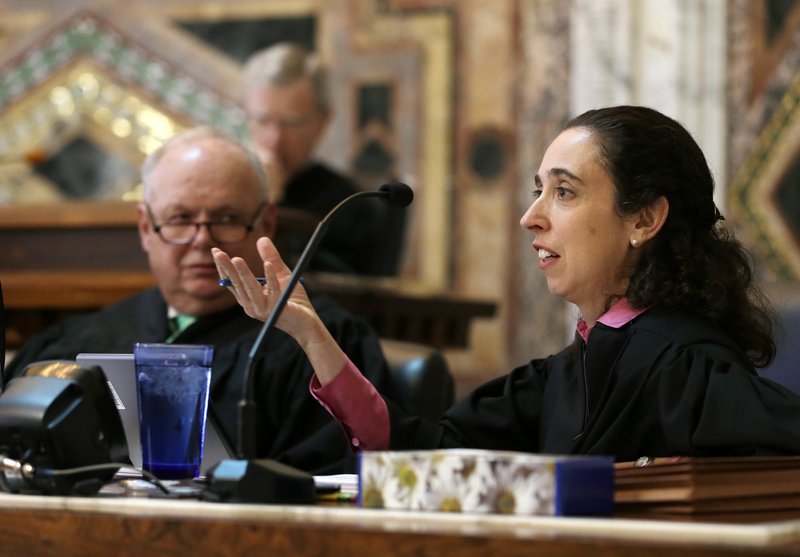
Three judges on the San Francisco-based 9th Circuit Court of Appeals will decide as soon as Thursday whether to immediately reinstate President Donald Trump‘s travel ban, which temporarily suspended the nation’s refugee program and immigration from seven mostly Muslim countries that have raised terrorism concerns. Here’s a look at their backgrounds, judicial decisions and questioning during arguments in the case this week: WILLIAM CANBY Canby rarely hears cases anymore. Now 85, he told The Associated Press two years ago that he felt sharp and healthy, but didn’t want to risk a job hazard that federal judges with lifetime appointments face: age-related mental decline. So it was unusual for the judge to hear oral arguments over the Trump travel ban. Canby — a former U.S. Air Force lieutenant and Peace Corps worker in Africa who was appointed to the 9th Circuit by President Jimmy Carter in 1980 — is known to have a polite and respectful courtroom demeanor. He encourages attorneys to have interests outside the law and told a reporter in 2005 he was running two to three miles before starting his day. He has written extensively about Native American law. Among his more high-profile decisions was a 1988 ruling declaring the U.S. Army’s ban on gay soldiers unconstitutional and a 2000 decision that said the PGA Tour is covered by federal disability law and must provide a cart to golfer Casey Martin. During oral arguments, he challenged the administration’s justification for the ban. Later, Canby appeared to come to the rescue of the attorney challenging the ban when another judge was grilling him about what evidence he had that the travel ban was motivated by anti-Muslim sentiment. Canby asked the attorney who had the legal burden of showing the likelihood of succeeding on their arguments in the case. The attorney responded that that burden was on the administration. ___ RICHARD CLIFTON Clifton, nominated to the 9th Circuit by George W. Bush in 2001, is the second judge from Hawaii to serve on the 9th Circuit. He grew up in the Midwest, but moved to Hawaii to clerk for another 9th Circuit judge after graduating from Yale Law School in 1975. He is still based there. Clifton, 66, was a lawyer for the Hawaii Republican Party, but has described himself as not having a pronounced political philosophy. He handled business and commercial litigation for a prominent Hawaii law firm and had never served as a judge before joining the 9th Circuit. He received nearly unanimous support for his nomination in the U.S. Senate. At his confirmation hearing, California Rep. Christopher Cox described Clifton as a lifelong Chicago Cubs fan, Cub Scout den leader, and dedicated husband and father who had some important credentials for being an appeals court judge: He refereed youth soccer. Since joining the court, Clifton has ruled in favor of a Los Angeles ordinance that required hotel operators to open their guest registries at the demand of police and called for a harsher prison sentence for a terrorist who plotted to blow up Los Angeles International Airport. Of the three judges who heard arguments over the travel ban, Clifton had the toughest questions for the attorney representing the two states — Washington and Minnesota — challenging it. He asked what evidence the attorney had that the president’s travel ban was motivated by religious prejudice. At one point, Clifton pressed him, “Do I have to believe everything you allege and say, ‘Well, that must be right.” But Clifton also grilled the administration’s attorney, asking him whether he denied statements by Trump about banning Muslims. The attorney said he didn’t. ___ MICHELLE FRIEDLAND At 44, Friedland is one of the two youngest federal appeals judges in the country. President Barack Obama appointed her in 2014, and during her confirmation hearing she received support from both parties. Friedland was born in California and attended school in New Jersey, where her father worked as the president of a clothing company and her mother was a writing instructor and freelancer, according to Friedland’s 2000 wedding announcement in The New York Times. She graduated with honors from Stanford University, studied at Oxford University on a Fulbright Scholarship and then got her law degree at Stanford University. She later clerked for U.S. Supreme Court Justice Sandra Day O’Connor. In private practice, she represented major clients, including Berkshire Hathaway, Boeing and the University of California. She was recognized along with a handful of other members of her firm by the California Bar Association for pro-bono work defending the constitutionality of California’s ban on sexual orientation “conversion therapy.” She also represented same-sex couples challenging California’s gay-marriage ban. With less than three years on the appeals court, a full picture of Friedland’s judicial philosophy has yet to emerge, some legal scholars say. Of the three judges at Tuesday’s hearing, she appeared to be the most sympathetic to Washington state’s case, repeatedly questioning the Justice Department’s lawyer over the basis for the travel ban: “Have you offered any evidence to support this need you’re describing for the executive order, or are you really arguing that we can’t even ask about whether there’s evidence because this decision is non-reviewable?” Republished with permission of the Associated Press.


